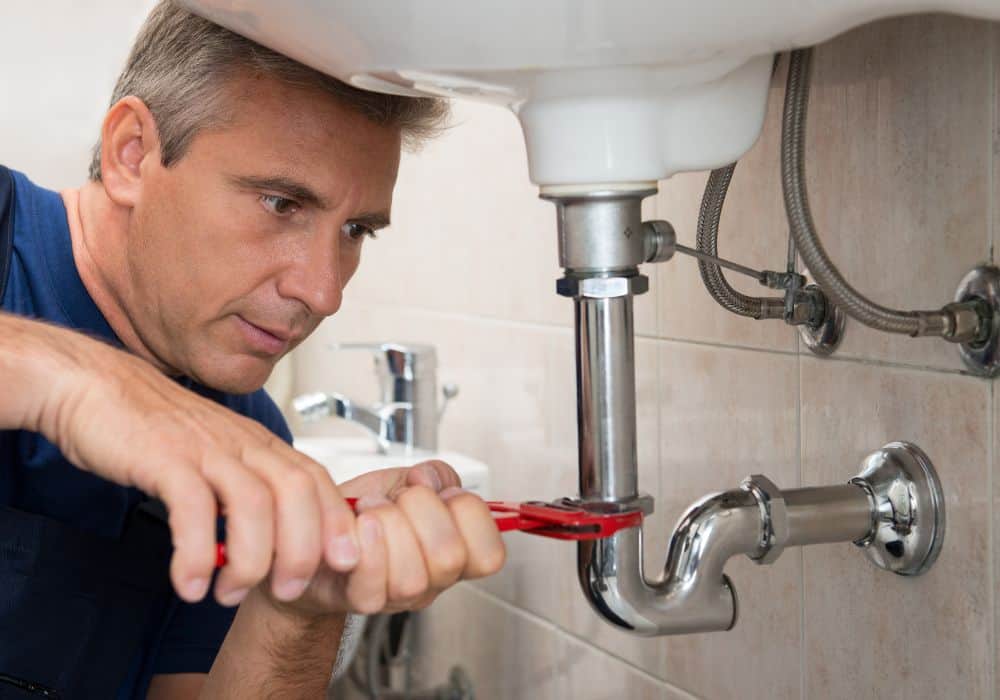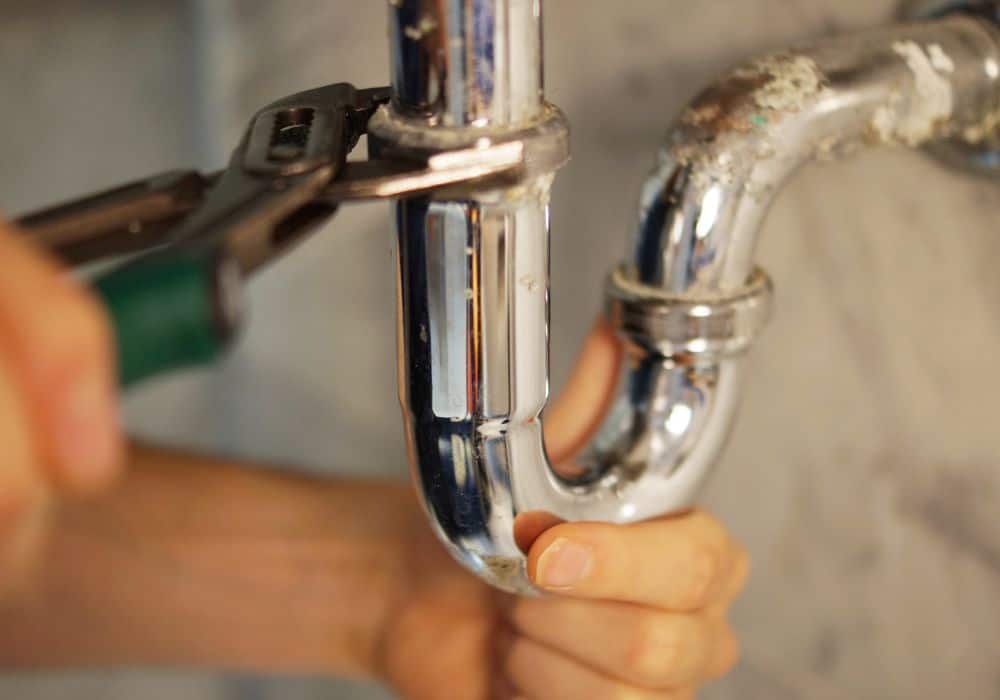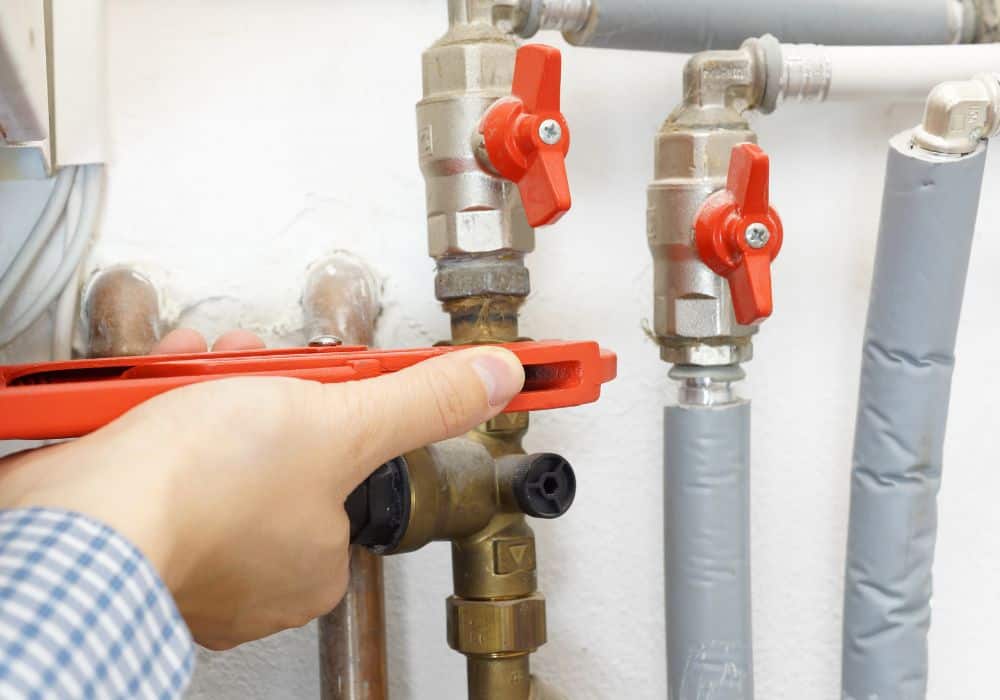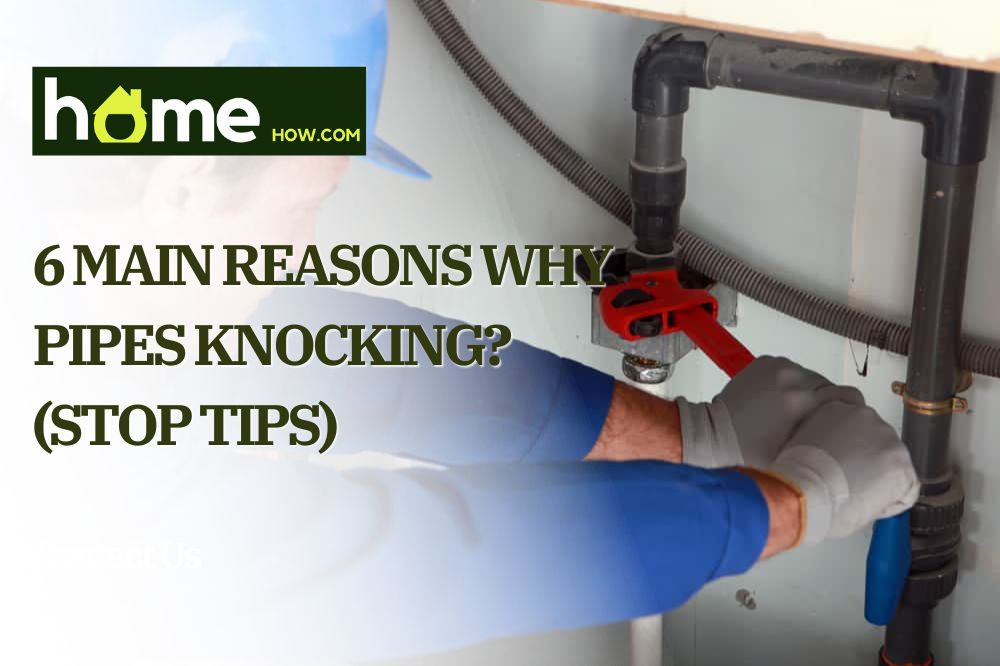Loud noises from pipes are not only unpleasant to the ears, but they are also a sign that there is a problem in your piping system that needs your attention. It’s nothing out of the ordinary, and there are quite a few reasons why pipes give out these knocking sounds.
Your pipes can make a knocking noise due to water pressure problems, loose pipe fittings, a bad valve, or a loose washer. We advise you to check the noise source or your entire plumbing system for the issue.
We’ll address this nagging issue explicitly below and offer some simple and quick fixes to help eliminate the noise and get your plumbing system back up in no time, all by yourself.
6 Culprits of Knocking in Pipes and How to Tackle Them

Knocking in pipes can lead to more severe damage if left unaddressed for too long, which is why we’ll help you identify several of the culprits here.
1. Loose Pipes Fittings
Loose pipe fittings are quite popular when it comes to knocking in pipes. Like many manufactured items, pipes are subject to wear and tear after prolonged usage. Your home pipes that carry hot and cold water to various outlets may become detached from their holding straps.
As they loosen, the water pressure traveling through them may cause the pipes to hit the wall or be unsteady, giving off knocking sounds. It’s, however, very likely that you would only hear this sound when the water is running.
- Solution
To correct the problem of loose supply pipes, you must attach the loose pipes to a beam or support with insulated pipe clips. This hack instantly solves the problem and kills the pestering noise.
However, be careful not to make the attachments overly tight as pipes usually contract and expand due to water temperature. Also, if your pipes are enclosed within a wall, you can stuff a soft pad or foam at the exit and entry points of the pipes to get rid of the noise.
2. Water Hammering

Another cause of pipe knocking can be traced to the sudden change in water flow and direction; this can give off a loud hammering noise, especially in situations where the shower is turned off swiftly or a toilet valve is shut suddenly. Doing this can cause the water to crash into the valve and already flow water on.
Dishwashers, washing machines, and ice makers are major causes of water hammering due to their solenoid switches that turn off water instantly instead of through a gradual process like a faucet would.
- Solution
To fix this issue, if a washing machine is the cause of the knocking sound, switch to a model with hose threads and screw them onto the hot and cold-water inlets behind the machine. Once you find where the supply lines connect the spout, turn off the water, remove the hoses, attach the arresters with a screw and reattach the hoses.
Also, if you want to install the arrestor directly on the washing machine, shut off the water supply, check behind the machine and find a suitable place to connect the arrester.
For dishwashers, you can find the hammer arrestor fixed between the wall valves or supply route. Dishwashers usually need hammer arrestors with 3/8- inch male and female compression fittings.
This problem is easy to address in homes built before the 1960s as they come with air chambers installed that can collect water. When you shut off the water supply to all faucets, you can help drain the excess water from your pipes and kill off the water hammer.
Here’s how to achieve this;
Step 1: Shut off the water supply to your building at the primary outlet
Step 2: Open the highest faucet in your home
Step 3: Open the lowest faucet, usually outside or buried in the basement. Next, drain all the water, which means the air inside the chambers will be refilled.
Step 4: Go back to turn off the lowest faucet and the primary water source.
Step 5: Allow the top faucet to run till you notice the sputtering has stopped, after which you turn it off.
Newer homes have an upgrade- the water hammer arrestors that act as landing pads for your pipes, helping them efficiently deal with the shock from water hammers. However, if this fails, we advise you to call a professional plumber to fit in new ones.
3. High Water Pressure
High water pressure can also cause your pipes to make knocking sounds even if they’re tightly attached to the wall. The ideal water pressure should be between 40 and 80 psi. Anything over 80 psi means you need to install a pressure-reducing valve.
- Solution
If the problem is caused by hot water, reduce the temperature slightly. However, if this hack fails, install a hot water expansion tank that’ll block the excess pressure and protect your pipes.
4. Copper Pipes
You may hear knocking sounds from your plumbing if you have copper pipes installed in your home, these pipes expand especially as hot water passes through them, and they may rub against each other, causing a loud noise.
- Solution
The solution to this menace is easy; all you have to do is reduce the temperature setting in your water heater, this way your pipes don’t expand excessively.
5. Water Temperature
Knocking usually happens in hot water pipes more than in cold water pipes. This is because when hot water passes through these pipes, it expands and contracts, and when it does the former, it may hit the wall or pipes beside it giving off a rumbling sound.
N.B: There’re cases where you can’t see these pipes as they’re inside the wall; you must perform a mini construction in your home. But let’s home your knocking pipes are within reach and touch, saving you the stress and money.
6. Build Up In Water Heater

In this situation, you’ll notice random banging noises coming from your pipes in the mornings or evenings while the water isn’t running. This problem is caused by a buildup of sediment in your hot water heater, and those sounds you hear are steam bubbles leaving the deposits under the water heater tank.
- Solution
You can remedy this by giving your water heater a good flush. Check below for steps on how to flush your heater. The solution below addresses two types of water heaters- Gas and Electric.
Step 1: You must turn off the Knob on your water heater’s thermostat located at the base of the tank for the gas water heater. If yours is electric, find the home breaker box and switch off the power source.
Step 2: Turn off the gas supply to the gas water heater—the gas pipe supplying the thermostat and pilot light and switch the valve off.
Step 3: Put off the cold-water line to the water heater. The cold-water valve is located near your water heater.
Step 4: Make sure to turn the water in a sink or any water-draining outlet. Keeping them on through the process will prevent a vacuum from showing in the lines when emptying the hot water tank.
Step 5: Attach a garden hose to the drainage valve- ensure the other end of your hose leads to an outlet that can help discard the water, and if your water heater is underground, you can get a small pump that can help get water out of the basement to the ground floor.
Step 6: Turn on the spigot and drain your tank till the water turns clear and is free of sediments. If your pipe has too many particles, you may need to drain out all its content.
Step 7: The next step is to flush your water heater by turning on the cold-water faucet leading into the water and letting it run for a while until the water gets clear.
Step 8: When you’re done with the process, make sure to fix things back and wait for a few minutes to allow the water to heat up and make sure hot water is running by turning a faucet for it to come out.
You can flush your water heater every 6 months or a year, depending on your preference and the mineral content of your water supply. In rare cases, some people flush their heater every month due to plenty of sediments.
Final Words
While knocking pipes is a great discomfort, finding your way around them is easy and does not necessarily require a professional unless things get complicated. Always keep your plumbing box handy and complete because knocking pipes are mostly recurring, and there’s a high chance you’ll address them often if you use lots of hot water in your daily activities.
Finally, if you reside in an area with high mineral content, you’ll most likely flush your water heater tank yearly or even less.
